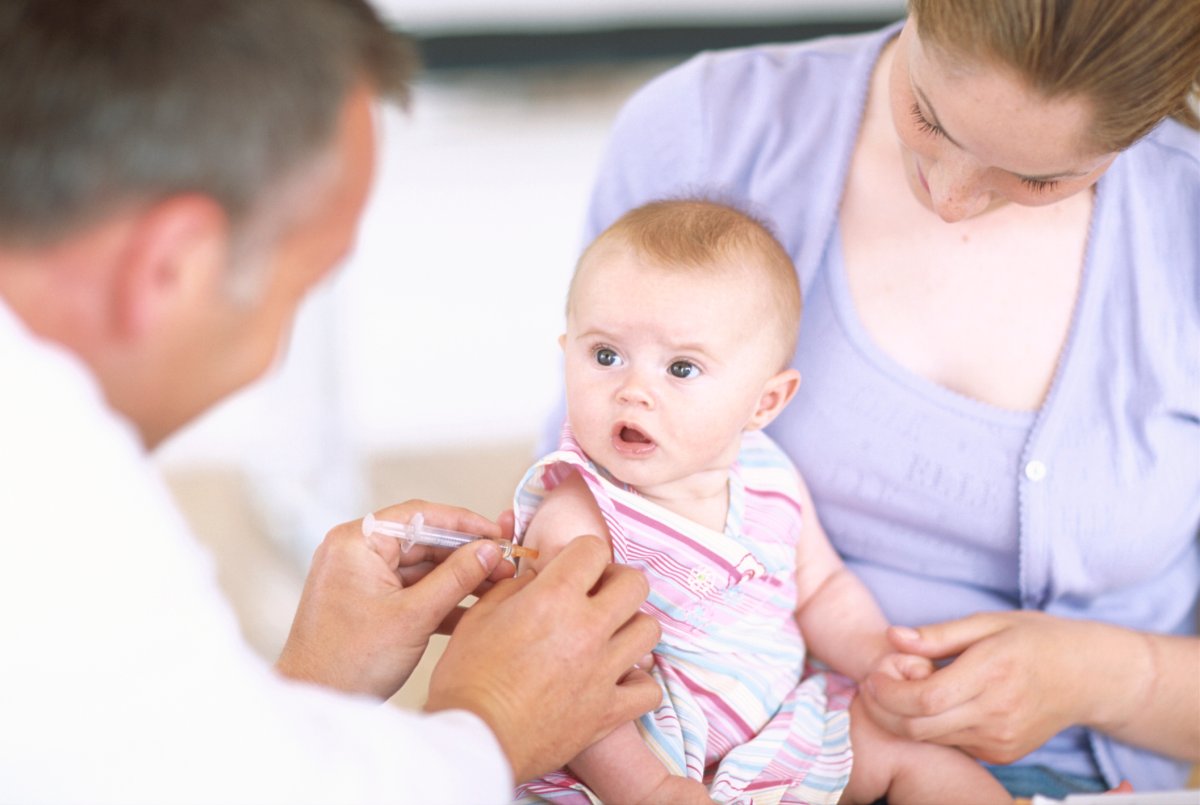Most Canadian health care professionals are encountering cases of what is known as vaccine hesitancy “on a regular basis,” but outright refusals by patients to vaccinate remain relatively rare.

That’s according to a recent survey of 2,004 family physicians, nurses, pharmacists, midwives and specialists conducted for the Public Health Agency of Canada by Environics Research in order to provide the agency with a clearer picture of exactly how widespread concerns are about vaccines have become.
READ MORE: As deadly measles outbreak spreads, Russian trolls and bots spread antivax messages. Here’s why.
The agency will use that data to decide how best to use the $25 million over five years allocated to it in Budget 2016 in order to boost immunization rates.
More than half of the health care professionals across categories reported their patients expressed reluctance about recommended vaccines at least some of the time but outright refusals or requests for alternative vaccine schedules were more rare.
WATCH BELOW: 37 dead as measles cases spike in Europe

Most also reported that the number of times patients mention incorrect information about vaccines in their appointments remains generally the same as it was five years ago.
Specialists were the only category to report they believed they were seeing more hesitancy or inaccurate information among patients.
However, a much smaller number of specialists agreed to take part in the survey than did health care professionals in other categories, something the survey writers note is a common challenge because of additional professional demands on specialists.
READ MORE: How a decades old, fraudulent anti-vaccine study still affects public health
There have been repeated outbreaks in recent years of preventable illnesses included measles, mumps and whooping cough across Canada and Europe.
Herd immunity to such illnesses is generally achieved when 95 per cent of the population is vaccinated against them.
Rates of vaccinations are declining, however, with about 90 per cent of Canadians actually protected.
That number ranges depending on the vaccine in question: for example, 91 per cent of Canadian children are vaccinated against polio by the age of two while just 77 per cent are vaccinated against diptheria, pertussis and tetanus by the same age.
The vaccination rate at the same age for measles, mumps and rubella is 79 per cent.
WATCH BELOW: Which adult vaccines should be kept up-to-date

Data from the federal government suggests there has been a 30 per cent spike in recent years in cases of infectious diseases that could be prevented by people getting their vaccinations: 6,184 cases were reported in 2005 while 8,018 were reported in 2014.
And just last month, the World Health Organization declared cases of measles in Europe have hit a record high.
Experts have directly pointed to decreasing vaccination rates as the reason for the increase, which has seen 41,000 people infected with measles between January and June 2018.
That number was 23,927 in 2017 and just 5,273 in 2016.
In total, respondents were made up of 601 pharmacists, 535 family physicians, 493 nurses, 297 midwives and 78 specialists specified as obstetrician/gynecologists and pediatricians.
When asked which reasons they had heard from patients reluctant to get vaccines over the past year, the top concerns reported by all health care professionals surveyed were concerns about specific ingredients in vaccines such as mercury, the fear of long-term side effects, and having heard of or known someone who says they had an adverse reaction to a vaccine.
“Significant proportions of each HCP type have also heard reasons related to under-estimating the threat of disease, lack of trust in institutions, and belief in alternative therapies,” the authors stated.
Of those said patients expressed a lack of trust in institutions, between 50 and 64 per cent of health care professionals surveyed said, that came in the form of conspiracy theories about pharmaceutical companies and the government.
WATCH BELOW: Saskatchewan bishops apologizing after letter about HPV vaccinations is raising eyebrows

While the health care professionals varied in the degree to which they characterized vaccine hesitation as a public health issue, a large majority across categories of practice said it was at least “somewhat of an issue.”
Between 36 and 38 per cent, not including specialists, said it was “a significant issue.”
Among specialists, 53 per cent said the same.
The online survey was conducted between November 2017 and January 2018.
Participants were paid $25 for their participation.
- ‘Shock and disbelief’ after Manitoba school trustee’s Indigenous comments
- ‘Super lice’ are becoming more resistant to chemical shampoos. What to use instead
- Is home ownership only for the rich now? 80% say yes in new poll
- Invasive strep: ‘Don’t wait’ to seek care, N.S. woman warns on long road to recovery




Comments